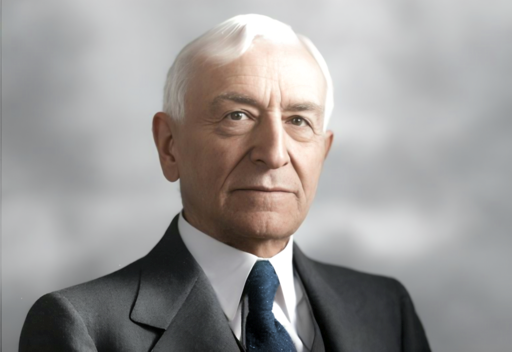Liberty Matters
The Business of Reshaping Economics

Geoffrey Hodgson's extensive list of capital types shows just how broadly and bizarrely the concept is being interpreted. (I can only shudder to imagine what "erotic capital" entails or how low my stock of it must be.) If Fetter were alive today, he would certainly agree that placing economic research back on a productive track requires abandoning these concepts and revising the meaning of capital.
Hodgson poses a vital practical question though: "How can we move forward from here?" That is, how can we root out such a deeply entrenched concept, especially when academic incentives are so strongly in favor of using it and even multiplying its variations? I agree with his answer that a viable alternative research agenda is the solution. But how and where to create it?
These questions provide yet another reason to remember scholars like Fetter, whose struggles can still offer us insight a century later. His example is not always positive though: despite his intellectual achievements, Fetter was ultimately unable to turn the tide of economic opinion and convince the economics profession to once and for all reject the weakest parts of classical economics. So what went wrong and how can we avoid past mistakes as we try to chart a different course?
As Joseph Salerno explains, Fetter and the American psychological school were hindered by their personal conflicts and professional choices. (Salerno 1999) Similarly, the early Austrians failed to develop an appropriate institutional framework within which their ideas could flourish and instead relied on serendipity and the inherent power of the truth to promote itself. (Salerno 2002) As a result, they were unable to offer a unified front against mainstream neoclassical economics. Without a clear sense of purpose and the scarce means (production goods) to follow it through, the ideas of both groups were mainly limited to their students and others in their professional circles.
Getting the institutional framework right is vital, then, and I doubt that anyone in this discussion would deny that institutions matter. But which setting offers the best opportunities for Fetter's brand of economic research? I think Peter Lewin hints at an answer when he points out the importance of accounting and finance standards: if we are searching for an audience for Fetter-style economics, why not push on the open door of business and management studies? Several business disciplines use theories of capital and rent close to Fetter's, so in a sense they already provide a natural outlet for developing an alternative paradigm that incorporates his ideas.[18] I've argued this before in the context of entrepreneurship (McCaffrey 2016), but many other possibilities exist.
Focusing on practical business is especially relevant for economists like the Austrians: given that they tend to stress realism and the entrepreneurial market process, it's only sensible that they'd be interested in the methods entrepreneurs and other businesspeople actually use. I don't think this requires completely ignoring economics as a forum for discussion, and I do think more effort is required in that direction. But I do believe the outlook is much brighter outside the mainstream.
Endnotes
[18.] There is some irony in this suggestion as Fetter was critical of business schools on ideological grounds.
Copyright and Fair Use Statement
“Liberty Matters” is the copyright of Liberty Fund, Inc. This material is put on line to further the educational goals of Liberty Fund, Inc. These essays and responses may be quoted and otherwise used under “fair use” provisions for educational and academic purposes. To reprint these essays in course booklets requires the prior permission of Liberty Fund, Inc. Please contact oll@libertyfund.org if you have any questions.